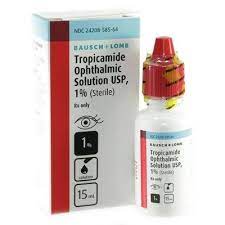“Ciprocet Eye/Ear Drops.” Product names and formulations can change, and new products may have been introduced since then.
However, if “Ciprocet Eye/Ear Drops” is a medication, it likely contains ciprofloxacin, which is a fluoroquinolone antibiotic commonly used to treat bacterial infections. Here are some general points about ciprofloxacin eye and ear drops:
- Ciprofloxacin:
- Ciprofloxacin is an antibiotic that belongs to the fluoroquinolone class. It works by inhibiting bacterial DNA gyrase, preventing bacterial DNA replication, and ultimately treating bacterial infections.
- Eye Drops:
- Ciprofloxacin eye drops are often prescribed to treat bacterial infections of the eyes, such as conjunctivitis (pink eye) or corneal ulcers.
- Ear Drops:
- Ciprofloxacin ear drops may be used to treat bacterial infections of the ear, including external ear infections (otitis externa) or middle ear infections with perforated eardrum.
- Indications:
- The specific indications for using Ciprocet Eye/Ear Drops would depend on the type of infection being treated. These drops are typically prescribed for bacterial infections.
- Dosage and Administration:
- The dosage and administration instructions would be provided by a healthcare professional. It’s important to follow the prescribed regimen and complete the full course of treatment.
- Precautions:
- Patients should inform their healthcare provider about any allergies, existing medical conditions, or medications they are taking. Ciprofloxacin should be used with caution in certain populations, and the healthcare provider will assess the risk and benefits.
- Side Effects:
- Common side effects may include temporary stinging or burning upon application. Serious side effects are rare but can include allergic reactions or changes in vision (in the case of eye drops).
- Storage:
- Eye and ear drops should be stored according to the instructions on the packaging. Typically, they are stored at room temperature, away from direct sunlight.
If you have been prescribed Ciprocet Eye/Ear Drops or have specific questions about their use, dosage, or potential side effects, it’s important to consult with your healthcare provider or pharmacist. They can provide personalized advice based on your medical history and the nature of the infection being treated.





Reviews
There are no reviews yet.